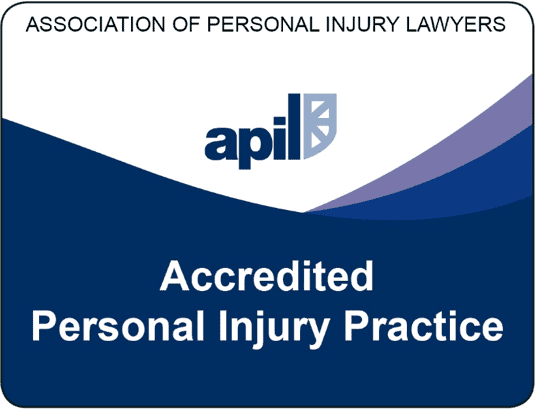An Ammanford-based knitwear company and a cladding firm site foreman have been fined for putting workers and visitors at risk of exposure to asbestos.
Corgi Hosiery Ltd contracted Dragon Cladding Ltd to remove an asbestos cement sheet roof at their New Road branch in Ammanford, Carmarthenshire
Having received a complaint about the work, the Health and Safety Executive (HSE) visited the site and found roofers had removed the asbestos sheets from the roof, but they had also removed plaster-like material from the underside of the sheets and structural steelwork.
HSE inspectors stopped the work immediately and tests confirmed the plaster-like material contained asbestos.
On further investigation it was found that Dragon Cladding Ltd's site foreman had instructed two workers to use a hammer and chisel to remove the plaster-like material from the building steelwork.
Merthyr Tydfil Crown Court heard no effort was made to establish what this material was prior to work commencing, and the debris was swept into domestic black bin bags and placed in open skips.
Throughout the duration of the work, Corgi Hosiery employees had continuous access to the main building, with one worker based in the area throughout the works. Visitors to the premises were not excluded from the works area and were also potentially exposed to asbestos.
HSE inspector Anne Marie Orrells said:
"Nowadays, the risks of exposure to asbestos are well known so this serious incident was inexcusable.
"Had Mr Phillips adequately assessed the risks prior to the start of the work, it would have been apparent that the work should have been carried out by an asbestos-licensed contractor, under controlled conditions.
"Corgi Hosiery Limited should have ensured measures were taken to exclude employees and visitors from the area while the roof work was being carried out overhead. As a result of these failings both workers and visitors to their premises were exposed to potentially deadly asbestos-containing materials."
When asbestos fibres are inhaled they can cause serious diseases which are responsible for around 4,000 deaths a year.
Lawford Kidd's Blog
Tighter crowd controls must be introduced at many music and sports events in the UK to safeguard spectator safety, the Institution of Occupational Safety and Health (IOSH) has warned.
Formal safety training for stewards, the retention of all-seater stadiums and better management of crowd flows are among measures urged by IOSH after its poll of sports and music fans revealed many had been hurt at an event or involved in a crowd surge.
Most big gigs or matches are well-organised with health and safety the number one priority, said IOSH, but there are still events being held across the UK every year which fall well below the necessary safety standards.
Nearly one in three people feared for their safety at a major sports or music event, according to the poll of 3,000 fans. Of those who felt unsafe, half blamed overcrowding, while many cited drug or alcohol misuse (18%), fighting (13%) and rowdiness of crowds (16%).
More than one in ten said they had been injured or hurt at an event, and a third had been caught up in a crowd surge – where people push forward en masse.
The Institution wants to see music event organisers provide competent on-site training for all stewards employed, and better management of crowds once inside a venue.
IOSH’s call to action comes in the wake of a number of disasters over the past decade in which people have been crushed to death in crowds. IOSH’s Sports Grounds and Events Group also reiterated its call to maintain all-seater stadiums in Premier League and Championship football stadia – a call backed by the Hillsborough Family Support Group.
European Health and Consumer Policy Commissioner John Dalli has called on Member States for immediate action to be taken at national level to ensure full and stringent implementation of the current legislation on medical devices.
Following the discovery of the use of non medical grade silicone in breast implants manufactured by the Poly Implant Prothèse (PIP) Company in France, the priority now is for the Member States and the Commission to act together to tighten controls, provide a better guarantee of the safety of medical devices and to restore patient confidence in the law that protects them.
Commissioner Dalli has written to Member States asking for their co-operation within the existing legal framework to tighten controls, in order to provide a better guarantee of the safety of medical technology, especially high risk devices. The actions proposed include the following:
- Verify the designations of notified bodies to ensure that they are designated only for the assessment of medical devices and technologies that correspond to their proven expertise and competence.
- Ensure that all notified bodies in the context of the conformity assessment make full use of their powers given to them under the current legislation which including the powers to conduct unannounced inspections.
- Reinforce market surveillance by national authorities, in particular spot checks in respect of certain types of devices.
- Improve the functioning of the vigilance system for medical devices for example by giving systematic access for notified bodies to reports of adverse events; encouraging healthcare professionals and empowering patients to report adverse events; enhanced coordination in analysing reported incidents in order to pool expertise and speed up necessary corrective actions.
- Support the development of tools ensuring the traceability of medical devices as well as their long-term monitoring in terms of safety and performance, such as Unique Device Identification systems and implant registers.
Lanarkshire Health Board has been fined £24,000 at Hamilton Sheriff Court for a breach of Section 3 of the Health and Safety at Work etc Act 1974, which led to the serious illness of a hospital patient.
Over the course of November 2008, the 64-year old female patient at Hartwoodhill Hospital became gravely unwell.
She was admitted to Wishaw General Hospital, where it was discovered that she was suffering from pneumonia and severe sepsis and was diagnosed as having Legionnaires’ Disease. She was treated with intravenous antibiotics, but required to undergo a tracheotomy on 1st December 2008. She returned to Hartwoodhill Hospital on 23rd December.
An investigation by the Health and Safety Executive (HSE) identified that legionella bacteria was present in three sources in the water system at the hospital. Two of those sources, including the shower used by the patient on a daily basis, matched the strain of legionella bacteria that had caused her illness.
The HSE investigation also established that a suitable and sufficient assessment of the risks from the potential presence of legionella bacteria to persons using the facilities had not been carried out, nor was there a safe scheme in place to manage and control the risks of exposure to that form of bacteria in the water system at Hartwoodhill Hospital.
Following the case, Elaine Taylor, Head of the COPFS Health and Safety Division, said: “Legionnaires’ disease is a very dangerous illness and those who fail to manage their systems adequately and expose persons to risk of contracting it, whether private companies or bodies such as Health Boards, can expect to be prosecuted.”
The Royal Bank of Scotland has been found liable for an injury sustained by a woman who slipped on a wet floor in one of its branches in Edinburgh, reports the BBC.
Patricia O'Donnell, who sustained a soft tissue injury to her ankle that left her unable to work for three weeks, was awarded £7,500 at Edinburgh Sheriff Court.
The wet floor had been caused by a leak coming from an upstairs flat. The leak had been happening for a number of months, and bank staff had tried to contain it by placing a bucket undeneath the drips.











